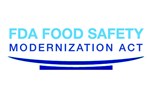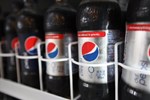BUCKET
-
Does Your Food Product Require Cold Chain Management?6/9/2015
Not all the products you think require cold chain shipping and storage actually do. However, determining if your products should utilize cold chain logistics isn’t just a guessing game, it entails controlled, science-based analysis.
-
The White House And FDA Issue Rule On Responsible Antibiotic Use In Animals6/4/2015
The Obama administration has issued its new rules regarding antibiotic use in meat and poultry production. Consumer groups have applauded the action, but indicate that the rules may not be tight enough.
-
Cutting Costs Through Better Supply Chain Visibility6/3/2015
In a tight business environment, such as the food industry, cost reduction is always a top priority. Establishing more efficient transportation logistics through enhanced visibility can reduce your food supply chain transportation costs.
-
Why Is Flexibility In Food Metal Detection Important?6/3/2015
Most metal detection systems have a range of detection capabilities, detecting all types of metal regardless of shape. However, in the highly-competitive food industry, you may demand great performance capabilities from your food product inspection system.
-
How Third-Party Shippers Benefit Cold Chain Management6/2/2015
With regulations growing more stringent, the landscape continues to grow in complexity for food carriers using the cold chain. New, cold chain management technology, along with outside help, can ease these burdens.
-
How FSMA Could've Helped ConAgra5/29/2015
FSMA is the catalyst of big changes in the food industry. With food safety issues being an on-going concern, FSMA requirements aim to help prevent contamination problems faced by food manufacturers.
-
Food Traceability Technology: Seafood Is Climbing Aboard5/28/2015
In some sectors of the food industry, traceability measures have been in place for years, allowing product origins and journeys to tracked across the supply chain. However, the seafood industry has lagged behind. But fear not, Maine’s is helping to address that with the “Boat to Plate” project.
-
PepsiCo Plans To Abandon Aspartame In Diet Pepsi5/22/2015
Diet Pepsi drinkers may soon find their favorite drink has made a change. The voice of the consumer has been heard and after years of using aspartame in its signature diet soda, PepsiCo is making a switch to other artificial sweeteners.
-
ERP May Deliver Best Practices For Safe Food Transport5/21/2015
Foodborne illnesses affect nearly 50 million Americans each year and according to the CDC. Compounding this problem are the countless types of food and the associated ways to handle and transport them. FSMA’s Sanitary Transportation of Human Food aims to provide some relief to the situation, but food companies are going to need some help and enterprise resource planning technology may provide the way.
-
Traceability And Transparency Are Key Aspects Of Food Pathogen Testing5/20/2015
FSMA regulations require food manufacturers and processors to be proactive in their approach to food-safety events. Because of this, many food producing companies are beefing up traceability practices within their supply chains. Adding even more urgency to bolstering traceability practices is the growing complexity and global nature of modern supply chains, along with consumers demanding to know who harvested and transported the food product, where the food and its ingredients came from, and how the food was handled on its journey from harvest to table.










